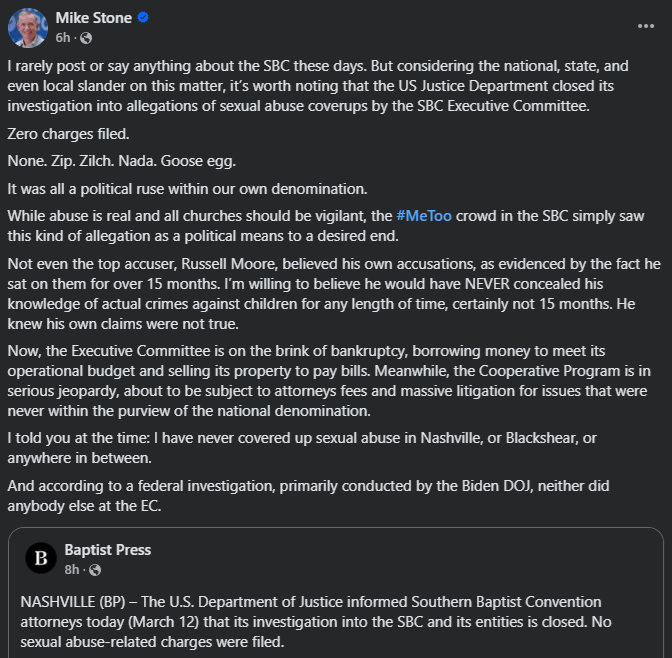Voices: The image of God in the immigration debate
I grew up in a small town in East Texas and lived in Texas until recently.
As a young student, I was in a dual-language program in which I was placed in class with Hispanic English-as-a-Second-Language students. When they would learn English, the dual-language students would learn Spanish. I had more Hispanic friends as a kid than I had white or Black friends.
Before and after graduating from seminary in 2024, I had a hard time getting a job in Texas. My theological positioning on issues like women in ministry and other issues made it near impossible for me to get a job. After a year and a half of applications, a small church in North Carolina called me to be an associate pastor.
Not living in Texas has been a struggle, but what has been more of a struggle has been watching what Texas has become since leaving.
As a pastor in North Carolina, I have watched congregants lose jobs to government budget cuts, and health care and disaster relief put on hold for people in desperate need due to politicians hoping to score points off the suffering of others.
Those were painful things, yet it has been even more painful to hear of and watch friends I grew up with be separated from their families due to deportation or not knowing if they will be allowed to remain in the country, to watch them live in fear while waiting for their lives to change dramatically.
Pastors are meant to be community leaders, and it has been angering to watch my home be changed without any ability to do anything about it. I hope this is an opportunity to make my voice heard, even if I no longer live in Texas.
Immigration proof texts
The Bible has a lot to say about immigration. This debate has been played out over and over again.
Proponents of immigration and the rights of those who have fought to reside in this country have their proof texts—Leviticus 19:33-34; Deuteronomy 10:18-19; Psalm 146:9; the entire book of Ruth; Matthew 25:31-46; the story of the Good Samaritan and more.
Opponents of immigration who support Texas Gov. Greg Abbott’s policies of dehumanization and violence against immigrants have their proof texts as well—Nehemiah, for example.
My goal is not to settle this debate here, because that’s not going to happen. I want to offer a different take. This, to me, is not a political issue or an immigration issue. That debate is insufficient. This is an imago Dei and ecclesiology issue.
Immigrants in God’s image
In a 2024 PRRI American Values survey, “white evangelical Protestants (60 percent) are the only religious group among whom a majority agree that immigrants entering the country illegally are poisoning the blood of the country.”
“Poisoning the blood” is a phrase lifted directly from Adolf Hitler’s Mein Kampf.
According to PRRI’s survey results, 60 percent of white evangelical Protestants, 46 percent of white Catholics and 36 percent of white nonevangelical Protestants think immigrants are not made in the image of God, based solely on which side of an imaginary border a person was born. This is a major issue.
The Bible claims God made humankind—all humankind—in God’s image (Genesis 1:26-27). One of the primary principles Nazi Germany sought to destroy in the German church was the imago Dei.
Once we lose the belief the human being next to us is made in God’s image, it becomes significantly easier to commit violence against one another.
The solution to the onslaught of political violence and hatred of immigrants is preaching and teaching the imago Dei. Our churches need to recapture being human is a value in and of itself, based solely on the love of God and the imago Dei, before we ever begin to discuss the “how” of immigration.
An immigrating church
Secondly, this is a church issue. Baptist life in particular has become so isolated from the global church, we forget many of those who travel to our country are brothers and sisters in Christ and often are members of churches in their country of origin.
As the American church dwindles in attendance, it seems impractical, at the very least, to desire the expulsion of our own church membership. However, churches have become more and more “purified” and isolated within their own echo chambers through social media.
As pastors, our job is to help our people grow. The best way we can offer growth is by exposing congregants to new ideas and people and challenging them to get out of their comfort zone.
That could mean joint worship services with churches outside of our denomination or ethnic group. It could mean learning ancient traditions that may not exist in our modern worship styles. Christ does not call us to sit in our churches mumbling about others outside of it.
I am a new pastor, but the challenges we are facing aren’t new. These issues have happened time and time again, and our churches have failed time and time again. It can happen in the United States if pastors do not do the work to help their congregants appreciate the value of God’s children. It’s time for us to do and be better.
True Head is the associate pastor of First Baptist Church in West Jefferson, N.C. He is a graduate of Baylor University and Baylor’s Truett Theological Seminary, and is native to Athens, Texas. The views expressed in this opinion article are those of the author.

